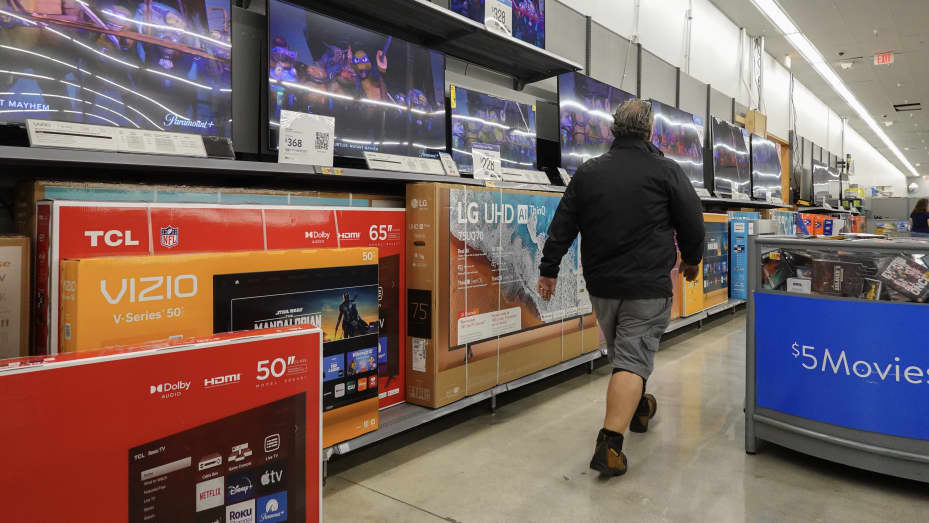Business
Walmart To Acquire Smart TV Maker Vizio For $2.3 Billion In Bid To Boost Its Advertising Business

Walmart is paying $2.3 billion for smart TV maker Vizio to boost its quickly growing advertising business and compete with Amazon.
If the purchase is completed, Walmart will gain access to Vizio’s SmartCast operating system, allowing the retail juggernaut to offer its suppliers the opportunity to display adverts on streaming devices.
Walmart Connect, which provides marketers with access to Walmart’s large consumer base, has helped the company grow its media and advertising business. Walmart reported on Tuesday that its global advertising business increased by nearly 28% to $3.4 billion last year.
The developments follow Amazon’s announcement last month that it will begin charging Prime members $2.99 per month to keep their films and TV series ad-free, in addition to the $14.99 per month or $139 per year Prime price.
What does Walmart stand to gain from a television manufacturer?
Vizio’s SmartCast technology has 18 million active accounts and has increased 400% since 2018. The firms claim that Vizio’s platform has over 500 direct advertisers and that ads now account for most of the company’s gross profit.
In recent years, makers of streaming gear, such as Roku and Vizio, have moved their focus to advertising revenue. Vizio established its Vizio Ads business unit in 2019, claiming to be “one of the few connected TV companies with the device penetration, consumer opt-in, and infrastructure to deliver meaningful scale.”
Walmart saw Vizio’s growing consumer base and grabbed the opportunity to develop its Walmart Connect business.
“We believe the combination of these two businesses would be impactful as we redefine the intersection of retail and entertainment,” said Seth Dallaire, executive vice president and chief revenue officer at Walmart U.S.
Who else is ramping up screen advertising?
Other large streamers, such as Netflix and Disney, have embraced the dual model, allowing them to generate revenue from commercials while simultaneously allowing customers to opt-out for a higher charge.
However, in the ever-changing streaming industry, whether consumers are prepared to pay more to see fewer commercials when they already pay subscription fees, frequently for numerous providers, remains to be seen. Many consumers “cut the cord” and ditched cable TV because they were frustrated with their ever-increasing fees.
How did the companies’ shares fare?
Vizio stock rose about 15% in the afternoon, reaching $10.96 per share.
Walmart’s stock jumped 3.1% to $175.66 per share after exceeding Wall Street’s expectations with its sales and profit on Tuesday.
Roku, one of Vizio’s primary competitors, saw its stock drop 6.4% by midday.
SOURCE – (AP)












































